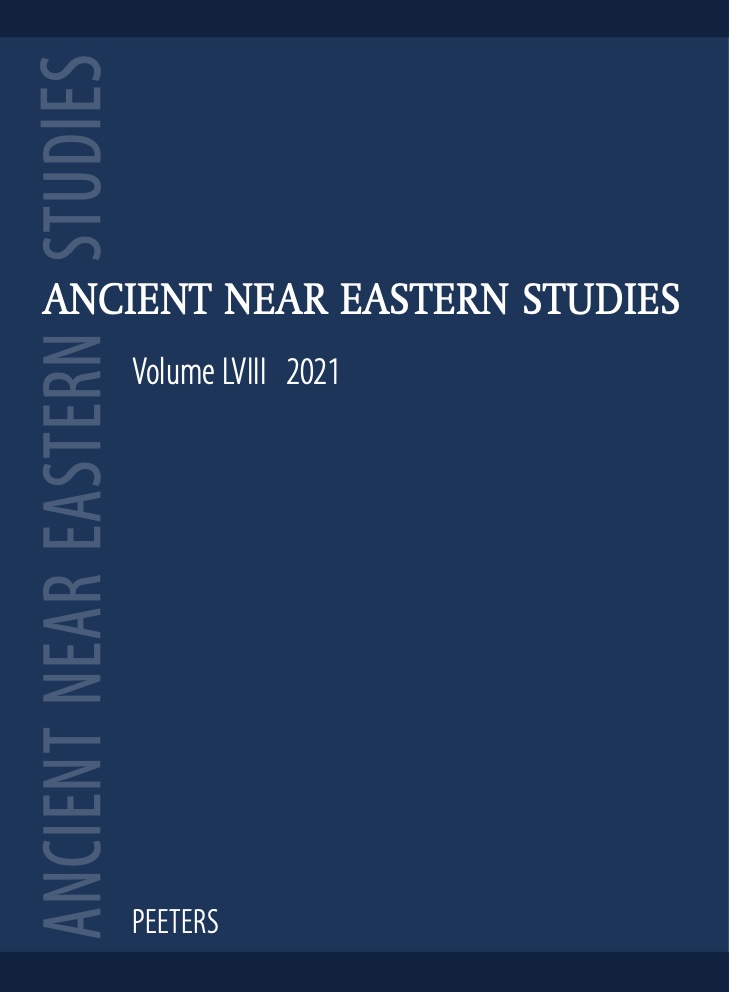next article in this issue  |

Preview first page |
Document Details : Title: Scribal Authority, Semantic Shift and Verbal Connotations in the Levantine Amarna Letters Author(s): YODER, Tyler R. Journal: Ancient Near Eastern Studies Volume: 57 Date: 2020 Pages: 1-28 DOI: 10.2143/ANES.57.0.3288609 Abstract : Scholars have long known that the verbal root ידע in Classical Hebrew, as well as its cognates, such as Akkadian edû, can signal connotations that transcend mere cognition. An intensive cognitive relationship naturally encroached into other conceptual domains, such as the physical and emotional, leading to contextualised renderings, like 'show concern' or 'care (for)'. And uniquely within the Late Bronze Age correspondence between Levantine provincial rulers and their overlord, Pharaoh, other verbal roots expand in this same direction. In fact, at least six different verbs within Amarna Akkadian discourse reflect this pattern of semantic shift. For example, an Amurru scribe employs a verb generally concerned with transportation (viz., wabālu 'to carry') to convey 'looking after' someone. A similar phenomenon occurs with verbs like 'to discuss' (malāku), 'to ask' (šâlu) and 'to assign' (paqādu). This study scours the extent, function and potential causes of this phenomenon. Drawing on Vita’s 2015 palaeographical study, the fruit of this research sheds new light on Levantine scribal education during the Late Bronze Age, demonstrating how scribes, operating as diplomats in a contentious political context, creatively and skilfully crafted letters designed both to capture attention and engender assistance. |
|


